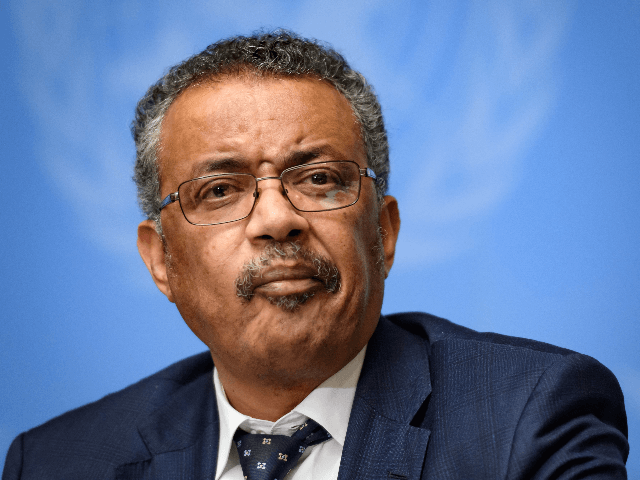No deal. That was the message for World Health Organization (W.H.O.) chief Tedros Adhanom Ghebreyesus on Friday after his proposed global pandemic treaty was rejected after two years of closed-door meetings in Geneva, Switzerland.
AP reports Roland Driece, co-chair of W.H.O.’s negotiating board for the agreement, acknowledged countries were unable to deliver an agreed proposal. W.H.O. had hoped a final draft treaty could be agreed on at its yearly meeting of health ministers starting Monday in Geneva.
“We are not where we hoped we would be when we started this process,” he said, adding that finalizing an international agreement on how to respond to a pandemic was critical “for the sake of humanity” even as a host of countries disagreed with the basic principle that unelected, unaccountable, health bureaucrats could somehow decide major global decisions on government policies.
Earlier this month, U.S. Republican senators wrote to the Biden administration, arguing the draft treaty focused on issues like “shredding intellectual property rights” and “supercharging the WHO.” They urged Biden not to sign off.
Driece said the World Health Assembly next week would urge participants to make “the right decisions to take this process forward” to one day reach a pandemic agreement “because we need it.”
Addressing a sullen final day of negotiations, the W.H.O. chief insisted, “This is not a failure.”
“We will try everything — believing that anything is possible — and make this happen because the world still needs a pandemic treaty,” Tedros said. “Because many of the challenges that caused a serious impact during COVID-19 still exist.”
Despite the desire of W.H.O. career bureaucrats to push ahead with the scheme, Britain’s department of health had already said it would only agree to an accord if it adhered to British national interest and sovereignty.
The co-chairs of the treaty-drafting process didn’t specify what caused the logjam, but diplomats have said vast differences remained over sharing of information about pathogens that emerge and the sharing of technologies to fight them, the AP report sets out.
Precious Matsoso, the other co-chair of W.H.O.’s negotiating board for the pandemic treaty, said there was still an opportunity to reach agreement and efforts would go on — despite the inability to reach a deal on Friday.
“We will make sure that this happens, because when the next pandemic hits, it will not spare us,” she said.

COMMENTS
Please let us know if you're having issues with commenting.